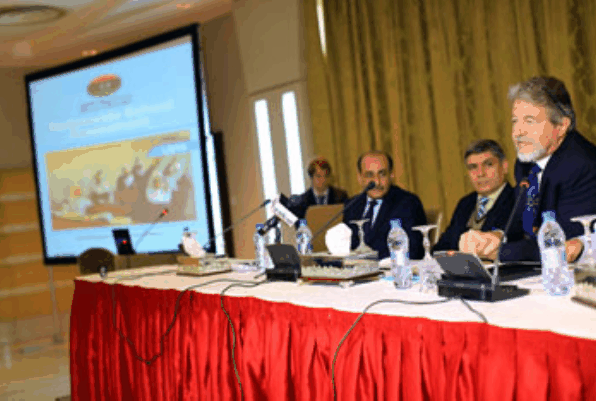Some 40 percent of the schools in Libya were damaged in the 2011 revolution according to a report released by the Ministry of Education (MoE) and UNICEF today. These findings are based on a recent nationwide school assessment conducted by the MoE and UNICEF, which for the first time has given the Ministry a complete overview of the exact state of all schools in the country.
The assessment was conducted by a team of over 300 MoE staff who visited a total of 4,800 schools collecting comprehensive baseline data on a range of indicators. They systematically recorded data on the state of education facilities and materials, water sanitation and hygiene facilities, provision for children with special needs, and protection and safety related issues. The assessment was supported by GPS technology to add further dimensions to the analysis.
“UNICEF congratulates the Ministry of Education for having successfully completed this massive operation,” said Carel de Rooy, UNICEF Libya Country Director. “It is a great achievement to have this detailed information on all schools, and we hope the data will be used to target interventions that will improve the learning environment for all children, including those with disabilities.”
The assessment, that was first proposed when UNICEF began operations in Libya in 2011, showed that 40 per cent of schools had sustained various levels of damage and that the southern provinces were most in need of repair. Proxy indicators related to quality education such as students-teacher ratio, classroom size, and provision of facilities and materials indicated that the rural provinces are more in need than urban centres.
In 15 per cent of schools more than 90 children share one toilet (boys and girls jointly), while 16 per cent of schools do not provide soap for children to wash their hands, and 1 in 4 schools reported not having access to safe drinking water for children.
Though student teacher ratios remain good at 5 to 1, significant shortages were noted in psychological support and special needs staff, a gap which needs filling in light of the psychological stress many children experienced in the last year.
“The opportunity to improve the national education system is now,” said Mr. de Rooy. “With the assessment in hand, the Libyan Government is now equipped to make better informed decisions on effective and efficient investments to normalize and then upgrade the quality of education.” He reaffirmed that UNICEF, with the support of the European Union, will continue to support broad-based reform efforts to improve the overall quality, access, and inclusiveness of the Libyan education system.
The assessment was also supported by the Russian Federation, the Government of Australia, the Kingdom of Sweden, the Government of Poland, and the European Union.
Please click here to read more.
(Source: UNICEF)





